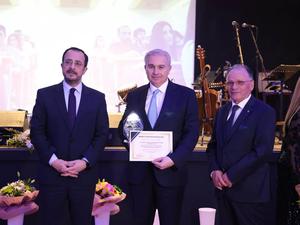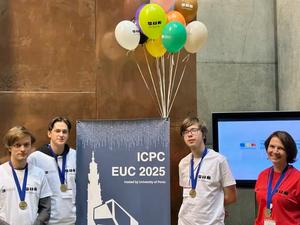Information
Civil Engineers are involved in the preliminary design, planning, supervision and construction of technical works, which are important components for the smooth functioning of modern societies. Roads, dams, tunnels, bridges, highways, airports, railroads, buildings, housing, harbors, jetties, oil platforms, water and wastewater systems all objects of civil engineering. The BSc in Civil Engineering at the Neapolis University in Cyprus is designed to produce graduates who will be able to meet these challenges, building their future on solid foundations. The program offers to each student knowledge and skills so as to enable them, upon completion of their studies, to enter the profession or to begin graduate studies.
The program provides a broad civil engineering curriculum that focuses on fundamental theory, mathematics, science, planning, design and construction. These compulsory courses, along with proper electives, allow students to focus on particular fields of Civil Engineering. Electives on two directions are offered initially, that is in Structural Engineering and Environmental Engineering, while electives on more directions will be offered later, as in Geotechnical Engineering, in Hydraulics, in Coastal Engineering and in Transportation Engineering. Students have the opportunity to design technical projects taking into account factors such as economy, environment, society, politics, ethics, health, safety, and sustainability and to become acquainted with several aspects of professional practice.
“Based on my long experience in the development and application of high-tech systems in various fields of engineering, today I am deeply convinced that if their full integration into the construction industry is deemed necessary, their use is imperative and irreplaceable even in the early stages of educating future engineers.”
Dr. John Bellos – Assοciate Professor of Structural Design and Construction Technology
Program
SEMESTER 1
- Linear Algebra
- Programming Principles I
- Architectural / Technical Drawing
- Engineering Physics
- Technical Terminology and Reports (Technical English)
- Free Elective
SEMESTER 2
- Calculus I
- Building Technology I
- Professional Engineering
- Principles of Ecology and Environmental Chemistry
- Computer Aided Design
- Land Surveying
SEMESTER 3
- Calculus II
- Computational Numerical Analysis
- Fluid Mechanics
- Strength of Materials
- Structural Analysis I
SEMESTER 4
- Statistics I
- Structural Analysis II
- Engineering Geology
- Engineering Materials
- Free Elective
SEMESTER 5
- Highway Engineering
- Soil Mechanics
- Structural Dynamics
- Steel Design I
- Hydraulics
SEMESTER 6
- Reinforced Concrete Design I
- Foundation Engineering
- Transportation Planning
- Earthquake Engineering
- Engineering Hydrology
SEMESTER 7
- Environmental Engineering
- Specialization Elective
- Specialization Elective
- Specialization Elective
- Placement or Free Elective
SEMESTER 8
- Dissertation
- Specialization Elective
- Construction Project Management
- Construction Law and Practice
SPECIALIZATION ELECTIVE COURSES
Structural Engineering
- Reinforced Concrete Design II
- Structural Analysis III
- Steel Design II
- Finite Elements Methods
- Damage Assessment and Retrofitting
- Coastal and Offshore Engineering
Environmental Engineering
- Environmental Sustainability
- Environmental Impact Assessment
- Water Resources Management
- Water Supply Networks
News

Neapolis University Pafos Awarded for Higher …

Neapolis University Pafos Establishes Jean Monnet …

Neapolis University Pafos and TechIsland renew …







